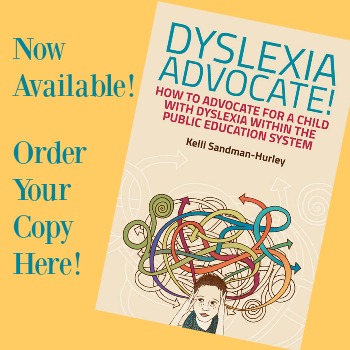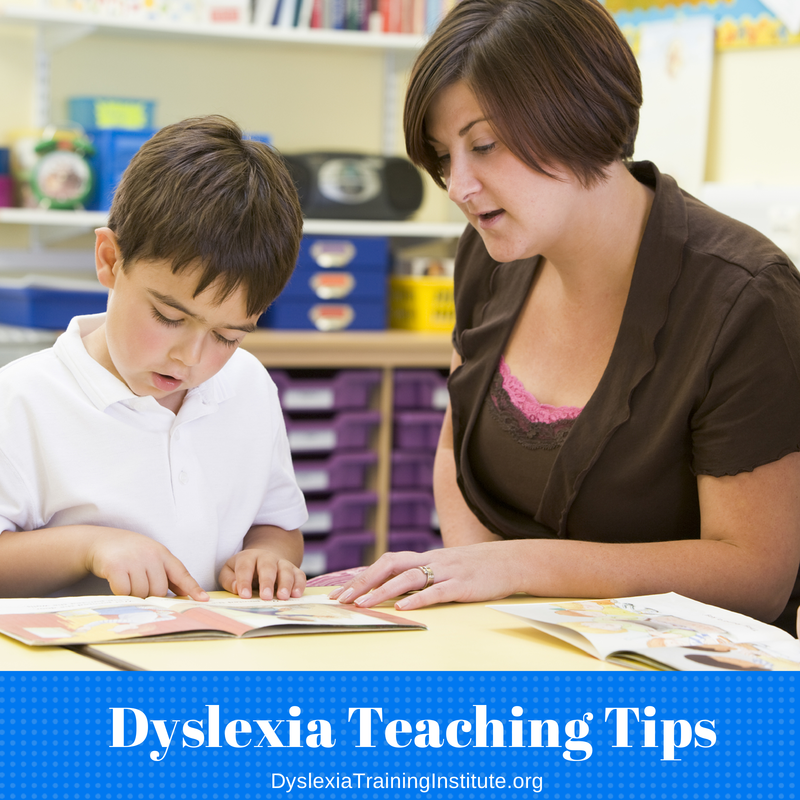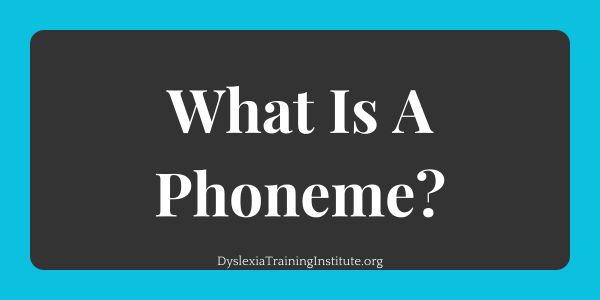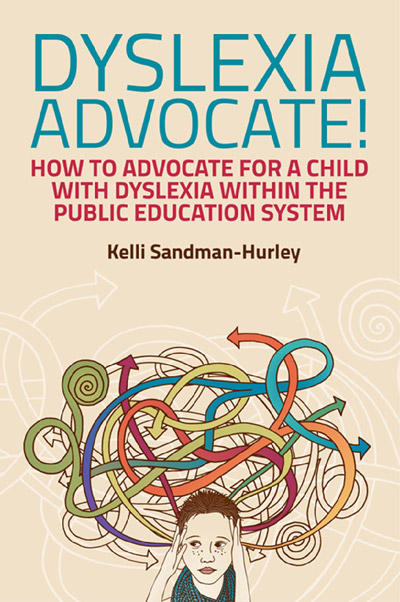Download a PDF copy of this article here.
 School has only been back in session for a little over one week and if I were being totally honest with you, I am not having a good year when it comes to dyslexia advocacy. There are moments, and lately it is happening more and more, when I just want to raise the white flag and say to the educational system, “You win. I cannot continue to have the same asinine conversations with different people in different meetings at different schools in different districts, on a daily basis. I cannot continue to argue about eligibility criteria and appropriate interventions. You win. I’m out. Instead of beating my head against the wall in yet another meeting, I am going to get a frozen yogurt.”
School has only been back in session for a little over one week and if I were being totally honest with you, I am not having a good year when it comes to dyslexia advocacy. There are moments, and lately it is happening more and more, when I just want to raise the white flag and say to the educational system, “You win. I cannot continue to have the same asinine conversations with different people in different meetings at different schools in different districts, on a daily basis. I cannot continue to argue about eligibility criteria and appropriate interventions. You win. I’m out. Instead of beating my head against the wall in yet another meeting, I am going to get a frozen yogurt.”
Dyslexia and the White Flag
So far, I’ve been able to get through those moments, but in those moments I learn things, things that I would like to pass on to those of you who are also having asinine conversations.
- The team often needs to be reminded that the parent/s is/are part of the IEP team. When you hear that something is a team decision, that decision should include you. It should include your observations, your input, your data, your outside evaluation and your outside tutors.
- Goals are individualized, just as the IEP is individualized. IEP teams are not confined to the drop-down menu for goals and, for the record, those drop-down menus are the complete antithesis of responding to identified individual needs.
- Remember to use the word ‘appropriate’ not ‘best’. You are not entitled to the best, you are entitled to what is deemed as appropriate and that can range wildly from school to school. This usually leads to one of the asinine conversations I was talking about. You need to remember not ask for Orton-Gillingham, but describe it instead.
- Most goals are poorly written – get educated on goal writing.
- You can call an IEP meeting at any time. Be reasonable, but also hold the school accountable and don’t be afraid to be ‘that parent’.
It has recently been suggested that those advocating with students with dyslexia already have the laws and court decisions needed to get what is appropriate for that student. Although I see the point the author is trying to make; which is, what is currently in place should be enough, but the reality is that it is not enough. Parents are still met with remarks like: dyslexia isn’t real, they don’t work with dyslexia, what we are currently using works for kids with dyslexia, he is not far enough behind yet, and we won’t test until he or she is older. If we had a category in IDEA, like autism has a category, with a definition of what dyslexia is and what teachers should know about dyslexia, and a description of what is actually appropriate, maybe our kids (and let’s not forget those kids who will never have an advocate in their corner and slip through the cracks on a daily basis) would get the help they need without wasting a phenomenal amount of time hashing through the mountains of misinformation and maybe I wouldn’t want to surrender and eat too much frozen yogurt.






A local special education lawyer posted this week (since progress reports and report cards came out on Friday) that we should go over them with a fine tooth comb. I started in on this task last night, comparing three IEP progress reports and am realizing I didn’t even need a fine toothed comb; a wide tooth comb was just fine for discovering gaps and discrepancies in the reporting of progress. So, thank you for your words of wisdom as I approach an annual IEP meeting. I need to get educated on goal writing because clearly, the ones my son has aren’t really heading him in the optimal direction.
I found this article hysterical, and not in a good way. It’s amazing how you’ve described perfectly what my wife and I are experiencing. I’m constantly trying to channel our emotions and extreme displeasure with the school system into a professional and carefully thought out action plan. We’ve taken to writing meeting minutes and holding the school accountable for the action items such as coordinating the efforts of our tutor who is OG certified and those of the SPED teacher who has no certification in anything. We’re exhausted. It shouldn’t be this hard.
Dr. Sandman-Hurley,
Moving large, stubborn systems often feels like a Sisyphean effort. We should not neglect, though, that there are two fronts. We can’t forget about the older students who have already been struggling with reading difficulties. However, we will have far fewer of these battles to fight if we would convince school systems to incorporate the methods studied in the research that is talked about in this technical report by the Florida Center for Reading Research. A research study done in Florida found that a multi-sensory, neuro-developmental model of reading instruction prevented approximately 97% of young children from experiencing severe reading difficulties in the future, while other instructional methods (explicit phonics, standard classroom instruction in a small group) failed to do so. We have dedicated much effort toward convincing schools to implement these methods. Our hope is that it will spare large numbers of parents and children the frustration you are describing here.
Tennessee likes to say “we do not recognize dyslexia” or maybe I should say some school systems and some schools. Eventough Tennessee gov. Proclaimed October dyslexia awareness month. And eventhough it is on the paper in black and white under specific learning disabilities. But, we do not recognize it. They have also passed a law they are suppose to educate about dyslexia during teacher education. As well as teachers having workshops on it and how to recognize it. But, we don’t recognize it. It is an up hill battle, but do not give up! And maybe your fight will help those who do not have an advocate.
Texas has dyslexia laws and specific guidelines that the school should follow. Do they follow them?? No. Why?? Becuase no one forces them to do so. I get the ” what we have will work for a child with dyslexia” all the time.
This is spot on! We are very blessed because in our district, and specifically our school, my daughter receives Orton-Gillingham instruction for 45 minutes each day. Her Dyslexia teacher is PHENOMENAL! Yet her classroom teachers (she has two) are a huge roadblock for my daughter. I am constantly having to advocate for her. The teachers “think” they know and understand dyslexia but still believe all of the misconceptions about dyslexia. E-V-E-R-Y L-I-T-T-L-E T-H-I-N-G is a battle with them. One teacher upholds that as long as she is pulled out during the day (it is during a time they do not introduce new concepts), that my daughter will never complete her classwork or tests without staying after school! Both teachers believe that my daughter should be accountable for every last bit of homework assigned. Since my daughter has just been identified and has only had the dyslexia intervention for a few months, I contest that she needs less homework overall because her brain is working so much harder just to get through the school day and anytime we do spend on “homework” needs to primarily be using the intervention strategies to practice sight words and working on reading fluency. Luckily, the 504 administrator at our school agrees with me and has set a 30minute time limit on homework for her each night. Yet each week the teachers fight tooth and nail with me and constantly give her “marks” in her folder for incomplete homework, even though I have been perfectly clear that if homework is not complete, it is because I have made that decision–NOT my daughter. They contest that her 504 meeting notes say there should be “no omission of content” therefore she has to complete shortened versions of all of the different assignments in order to comply. As her parent and being in close contact with her dyslexia teacher, don’t I have the authority to prioritize her homework and think about her education as a whole? That means sometimes we replace the language arts homework with dyslexia strategies practice and reading a whole lot more.
I apologize for the long post! I just totally relate to feeling like I need to just raise my white flag sometimes and I am just at the beginning of this journey. I will never stop advocating for my daughter, but sometimes I am just brought to the point of telling my daughter to just ignore her teachers. That her dyslexia teacher and I know what is best and if she gets a “mark” it really doesn’t matter. Not the right way to teach her to view her teachers and that is unfortunate.
Exactly how I am feeling. I am so done. I wish I could say I was having the same conversations with different people… sadly it is often the same people. There is, at the heart of this, a bias… and a refusal to see that bias. So often, my mind is now struggling with how to address that, how to shake people out of their bias.